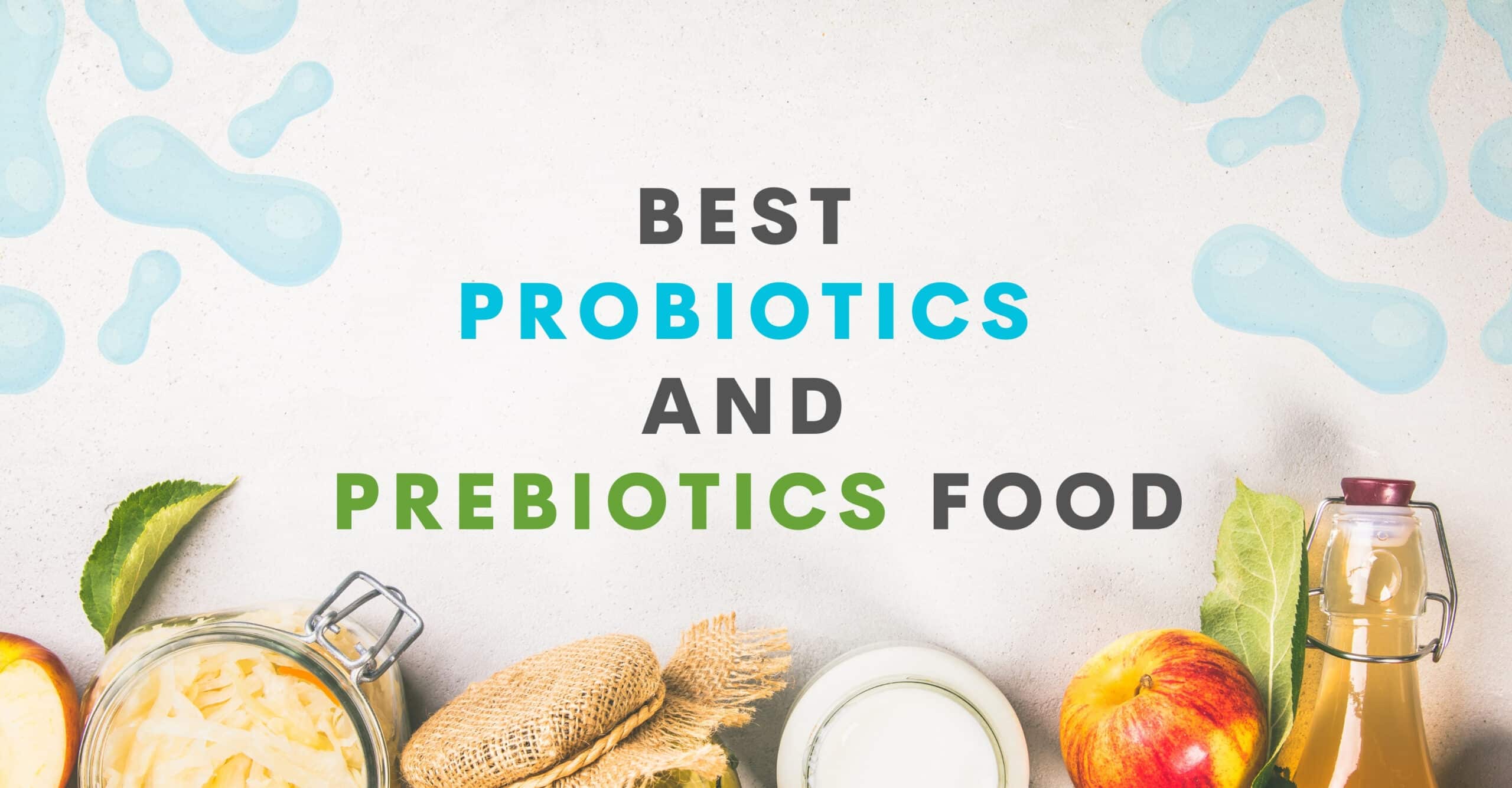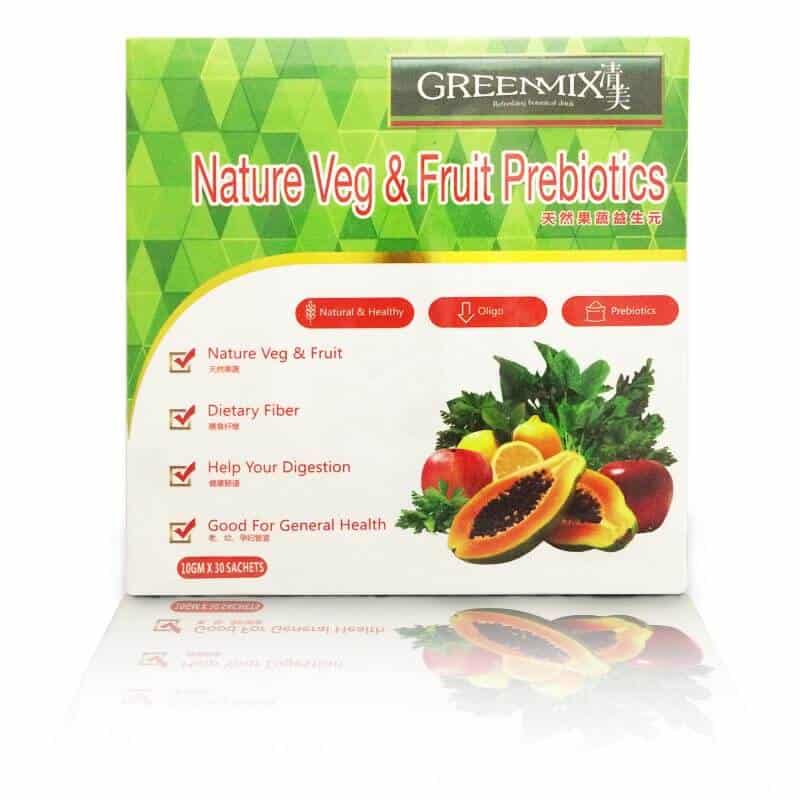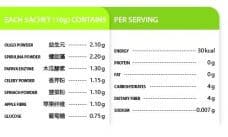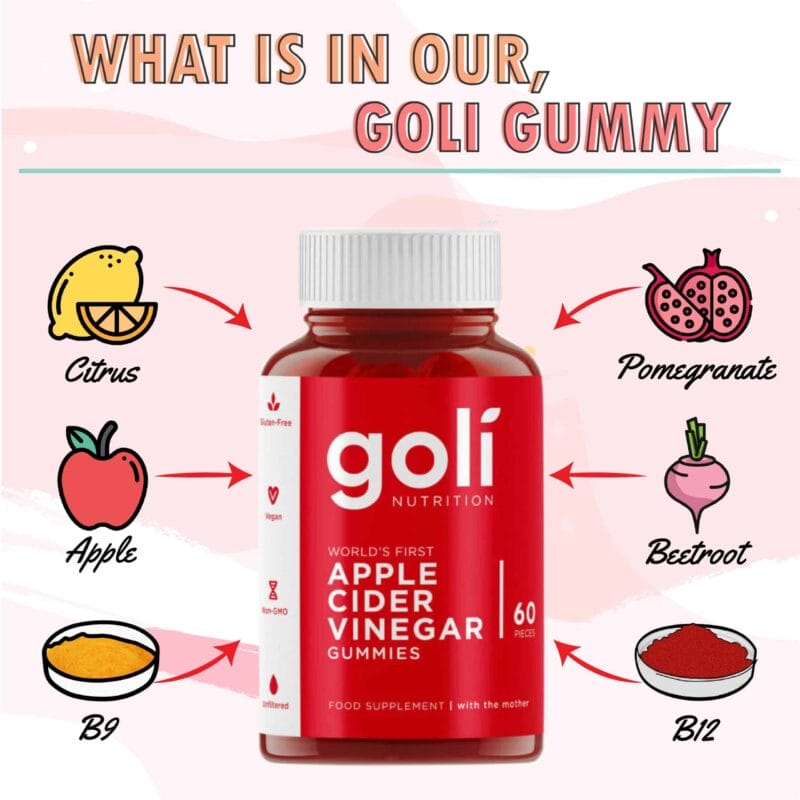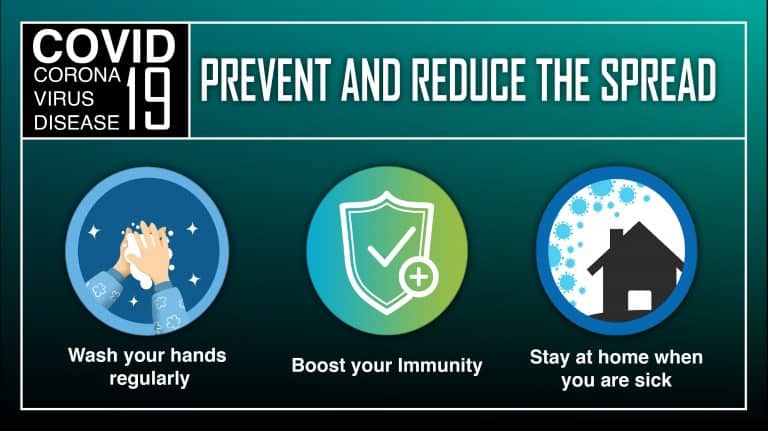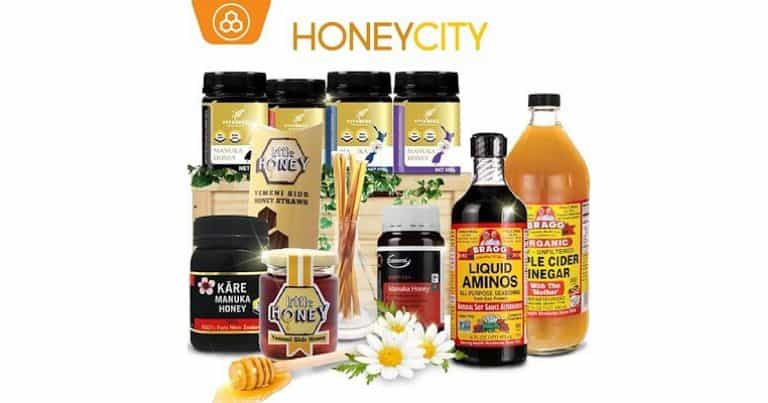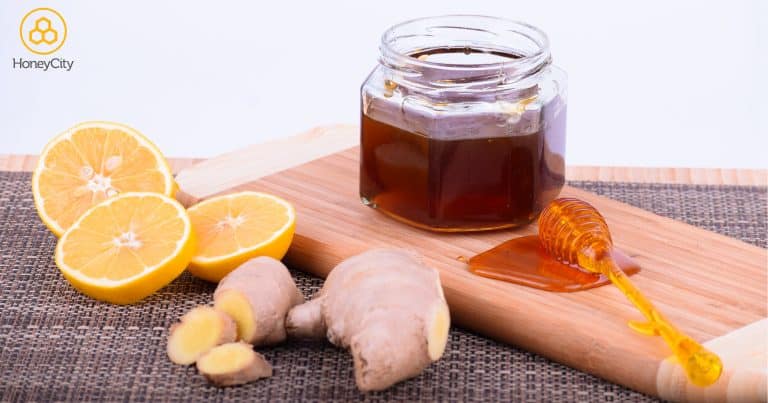Probiotics and Prebiotics: The Best Food Sources to Look For
Probiotics are live bacteria (good or helpful bacteria) and yeast that live in your gut.
They are excellent for your gut and immune health. Prebiotics are non-digestible food ingredients like fibre that promote the growth of probiotics (live bacteria and beneficial micro-organisms).
What Are Probiotics-rich Food?
They can be found in our daily food sources and we can incorporate them into our meals for a healthier and stronger immune system.
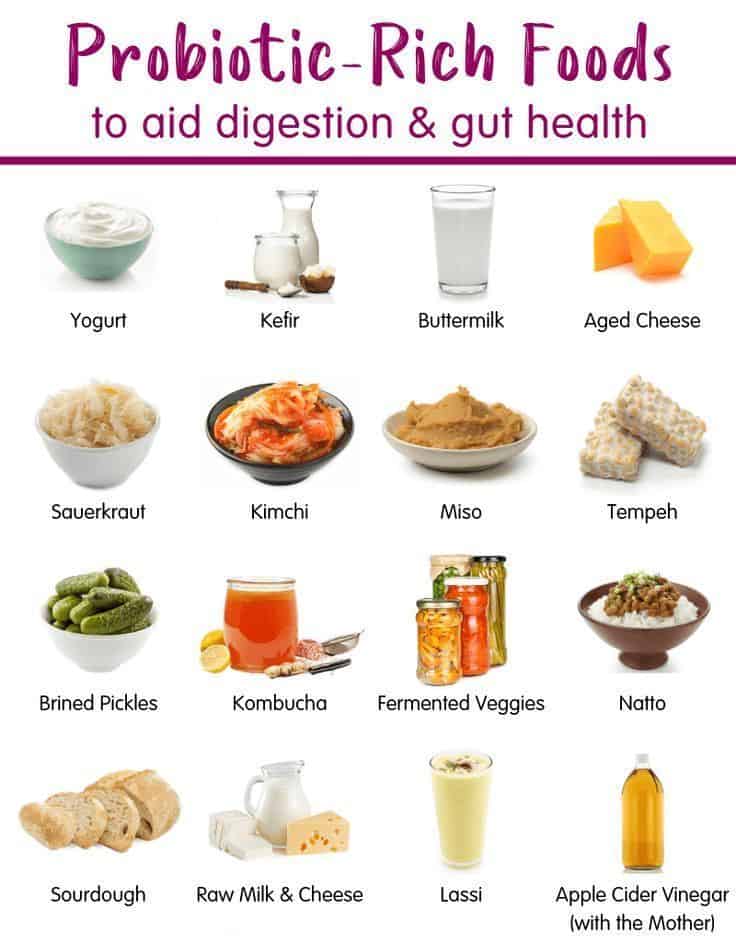
Top Probiotic Food Sources
- Yoghurt
- German sauerkraut
- Korean kimchi
- Japanese miso soup
- Japanese natto
- Kefir (Found in the Middle East, India, and more)
- Lassi
- Kombucha
- Sourdough bread
- Soft cheese
- Acidophilus milk (cultured milk)
- Buttermilk
- Sour pickles
- Tempeh (Found in Indonesia, Malaysia)
- Apple cider vinegar (or ACV Gummies)
- All sorts of fermented food
- Probiotics supplement
What Are the Signs That You Need Probiotics?
How do you tell if you truly need to eat foods rich in these live microorganisms?
There are a few telltale signs like these:
- You feel anxious, irritated, and depressed frequently
- You suffered from food poisoning before
- You have asthma
- You have food allergies
- Your immune system is weak and you fall sick easily
- You have skin conditions like acne and eczema
Probiotics-rich Foods for Vegans
Not all foods in the list above are suitable for vegans, like yoghurt.
Vegans require a special diet, even for probiotics-rich food. Some of the most ideal options are:
Sauerkraut
This is a fermented cabbage dish that has experienced immense popularity in a number of Eastern European countries.
It is abundant in plenty of good substances, including probiotics, potassium, Vitamin C and K. Sauerkraut has the Lactobacillus bacteria that converts the sugars into lactic acid.
You can also make it at home using finely sliced cabbage fermented in brine. Brine is a highly concentrated saltwater solution.
Kimchi
If you’re in the Korean wave, kimchi should be no stranger.
This spicy and tangy fermented cabbage side dish goes with almost anything in Korean cuisine. Kimchi is made in a similar manner to sauerkraut and has probiotics, antioxidants and vitamins.
Kombucha
Kombucha has gained popularity over recent years for its benefits.
This fermented tea uses a symbiotic culture comprising bacteria and yeast, and has low levels of alcohol. This means that if you’re pregnant or breastfeeding, you need to check the alcohol concentration to make sure that it’s suitable for consumption.
Probiotics-rich Foods for Babies
When it comes to children, gut health is of particular importance.
Knowing these picky eaters, there are certain types of food that may be easier to introduce. They are:
Yoghurt
Yoghurt is created using milk fermented with bacteria. This tasty treat has been proven to aid in treating diarrhoea and irritable bowel syndrome (IBS) faced by some children.
However, note that not all yoghurt is made the same. Some types of yoghurt contain live cultures that indicate the existence of active probiotic strains. For others, these strains may have been eliminated during the processing procedure.
Kefir
When you combine kefir grains with cow or goat milk, you create a delicious fermented milk drink.
While kefir naturally has a sour taste as most fermented foods are, many brands have come up with flavoured versions to suit different palates. They may have fruit flavours like strawberry and mango.
Kefir has more probiotic strains than yoghurt, making it an even better option.
Buttermilk
While some types of buttermilk may have active cultures, the typical buttermilk products you see in supermarkets may not, because of processing.
Make sure to take a look at the label to see whether there is evidence of cultures. Alternatively, you can even try to make your own buttermilk in the comforts of home. You can use it to make baked goods or even add it to your freshly made pancakes.
Probiotics-rich Foods for Yeast Infections
A yeast infection is one of the most harrowing female conditions to experience.
Most women would have experienced it at least once in their lifetime, and a chunk of them will experience it in a recurring manner. A yeast infection signals that your body’s natural bacteria have become imbalanced, and eating the live microorganisms may help to improve your symptoms.
Some foods to consider are:
- Yoghurt
- Kefir
- Pickles
Probiotics-rich Foods for Acne
Have an ongoing acne problem?
A few types of skin conditions like acne and rosacea can be triggered when your gut’s healthy balance of good and bad bacteria veers off course. It damaged the intestinal lining and eventually causes inflammation throughout the body.
The live microorganisms help in alleviating acne symptoms by:
- Reducing internal inflammation
- Safeguarding the skin against environmental damage
- Boosting the skin’s natural moisture barrier
- Decreasing the production of the bacteria that causes acne
You can include these different foods to help your condition:
- Kombucha
- Tempeh
- Miso
Dairy-free Probiotics-rich Foods
If you’re lactose-intolerant, you can consider the same food sources that vegans look for to get your dose of probiotics as indicated above!
Who Should Not Take Probiotics?
Although they are generally safe, there are certain groups of people who should avoid probiotics.
Both children and adults who have serious illnesses or compromised immune systems should steer clear of them. This is because some of these vulnerable groups of people have experienced fungal or bacterial infections after using them.
What Are Prebiotics-rich Food?
Prebiotics can be a healthy and affordable way to improve your probiotics.
This is especially if you dislike the taste of prebiotic-rich foods. They can be found in many fibre-rich vegetables and fruits, and can be an affordable way to improve your immunity and gut health.
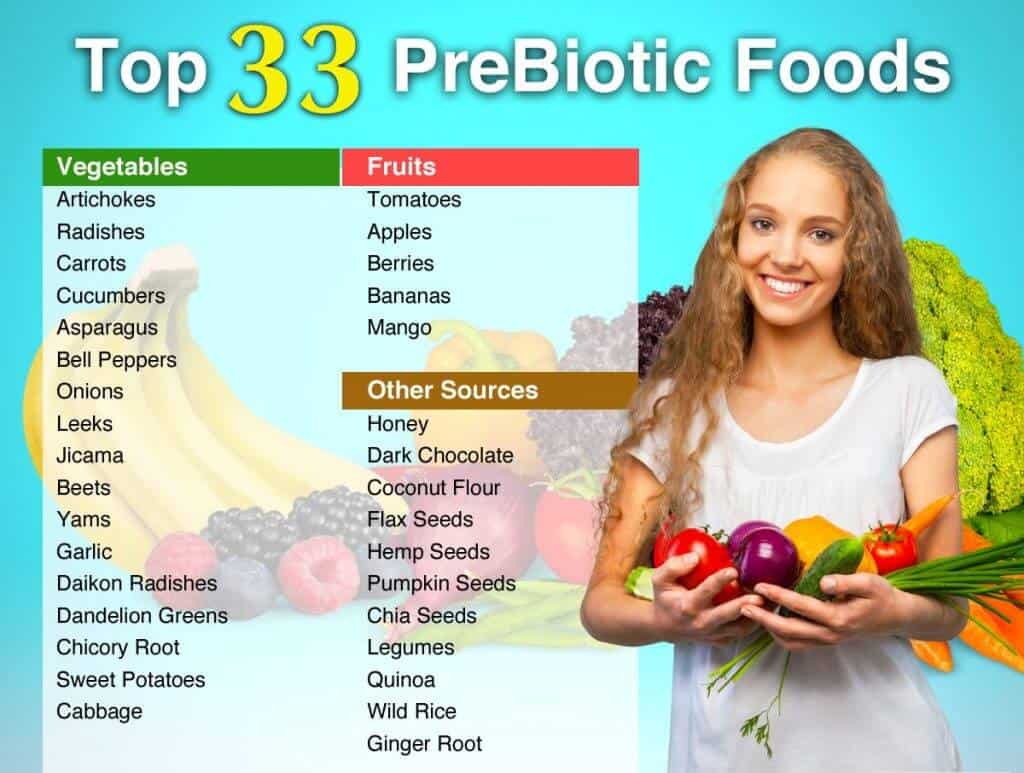
Top Prebiotic Food Sources
- Apple
- Banana
- Blueberries
- Barley
- Spinach
- Pulses, beans, lentils, peas, chickpeas
- Oats
- Garlic
- Onions
- Dandelion greens
- Asparagus
- Leeks
- Jerusalem artichoke (aka Earth Apple)
- Seaweed
- Wheat bran
- Konjac root (elephant yam)
- Cocoa (dark chocolate rather than usual chocolate)
- Chia and flaxseed
- Whole grains (wholemeal bread or brown/red rice instead of white bread/rice)
- Burdock root
- Prebiotics supplements (e.g. GREENMIX fruits and vegetable prebiotics supplement)
Who Should Not Take Prebiotics?
Is it safe to take prebiotics?
It usually is, but findings from a 2017 review hint that people with serious sickness or weakened immune systems should avoid eating probiotics.
This is because some people have faced fungal or bacterial infections.
What Are the 3 Worst Foods for Your Gut?
We’ve covered the best types of food for your gut health – what about the worst kinds you should avoid?
They are:
- Fried food
- Citrus fruits
- Artificial sugar
Others include:
- Beans
- Processed food
- Coffee, tea and soft drinks
- Raw vegetables
- Excessive fibre
- Fructose
- Spicy food
- Dairy products

